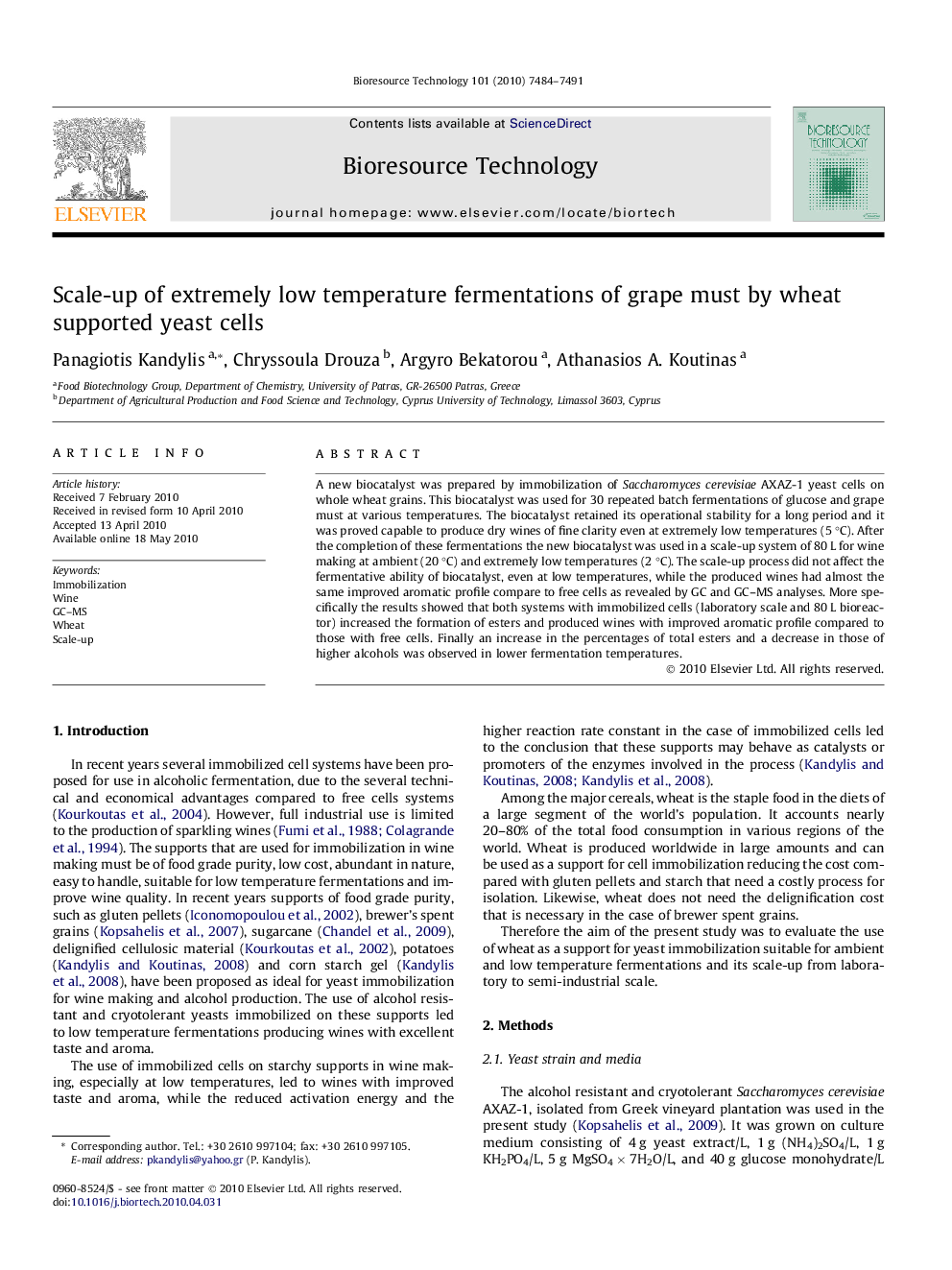| Article ID | Journal | Published Year | Pages | File Type |
|---|---|---|---|---|
| 682839 | Bioresource Technology | 2010 | 8 Pages |
A new biocatalyst was prepared by immobilization of Saccharomyces cerevisiae AXAZ-1 yeast cells on whole wheat grains. This biocatalyst was used for 30 repeated batch fermentations of glucose and grape must at various temperatures. The biocatalyst retained its operational stability for a long period and it was proved capable to produce dry wines of fine clarity even at extremely low temperatures (5 °C). After the completion of these fermentations the new biocatalyst was used in a scale-up system of 80 L for wine making at ambient (20 °C) and extremely low temperatures (2 °C). The scale-up process did not affect the fermentative ability of biocatalyst, even at low temperatures, while the produced wines had almost the same improved aromatic profile compare to free cells as revealed by GC and GC–MS analyses. More specifically the results showed that both systems with immobilized cells (laboratory scale and 80 L bioreactor) increased the formation of esters and produced wines with improved aromatic profile compared to those with free cells. Finally an increase in the percentages of total esters and a decrease in those of higher alcohols was observed in lower fermentation temperatures.
